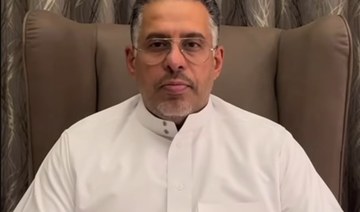RIYADH: The Ministry of Municipal, Rural Affairs and Housing announced on Saturday that a Saudi Food and Drug Authority laboratory test had found clostridium botulinum in a Bon Tum mayonnaise brand used by the Hamburgini food chain.
Since the bacterium was discovered in a Bon Tum factory, the ministry has collaborated with the SFDA and other authorities to enforce additional measures beyond those previously implemented.
These measures include suspending the distribution of the mayonnaise product and withdrawing it from markets and food facilities across all cities in the Kingdom. They also include halting operations at the factory in preparation for implementing statutory procedures.

The bacteria that caused a Botulism outbreak was discovered in a Bon tum factory. (Supplied)
Any remaining quantities of the product at the factory across all batches and expiration dates have also been withdrawn, and all factory clients, including restaurants and food establishments, have been notified to dispose of any quantities they own.
The ministry has also issued instructions to continue the monitoring, investigation, and inspection campaigns across all cities of the Kingdom by municipalities and relevant authorities, ensuring the safety of food products provided to consumers.
Authorities have emphasized the importance of obtaining information from official sources and not being swayed by rumors and misinformation.
HIGHLIGHTS
• The botulism outbreak was first brought to light on April 27 when Riyadh municipality received a report of food poisoning cases linked to the Hamburgini restaurant chain.
• New measures undertaken by authorities include suspending the distribution of the Bon Tum mayonnaise product and withdrawal from markets and food facilities in the Kingdom.
• Any remaining quantities of the product at the factory across all batches and expiration dates have also been withdrawn.
• Authorities have emphasized the importance of obtaining information from official sources and not being swayed by rumors and misinformation.
Dr. Nezar Bahabri, infectious diseases consultant at the International Medical Center in Jeddah and the director of the Saudi Society of Medical Microbiology and Infectious Diseases in Jeddah, told Arab News that contracting illness through clostridium botulinum is very rare as it thrives in non-oxygenated (anaerobic) environments and is typically found in improperly preserved foods.

Dr. Nezar Bahabri, Infectious diseases consultant, International Medical Center
The bacterium produces a toxin that attacks the body’s nervous system, resulting in muscle weakness, blurred vision, difficulty speaking and swallowing, and eventually paralysis. Typically, the likelihood of exposure to this bacterium is low with modern food safety practices in place.
Bahabri said: “When this bacterium is ingested, and the toxin is released, symptoms will manifest within a few hours up to around two days.”
Mohammed Al-Awamy, a gastroenterologist, told Arab News: “Symptoms start in the face and then descend to involve the limbs and trunk. Respiratory failure ensues due to involvement of the respiratory system leading to cardiopulmonary collapse.”
The best measure to be taken is eating fresh and cooked food as the heat of cooking will kill the bacteria, and the toxin will become ineffective.
Dr. Nezar Bahabri, Infectious diseases consultant, International Medical Center
The symptoms of botulism, the illness caused by clostridium botulinum, are quite distinct and can be quickly recognized and treated with an antitoxin.
Bahabri explained: “If it was an injury, we will clean the wound and the infected tissue. If it is due to ingestion, we administer antitoxin, IV (intravenous) fluid, and painkillers as needed.”
Botulism is a life-threatening neurological disorder resulting in paralysis and death if not treated promptly.
Bahabri said that a patient must be admitted to hospital for observation, adding: “If the patient develops symptoms or weakness in the respiratory or lung muscles, we will transfer them to the ICU (intensive care unit) to put them in mechanical ventilation until the antitoxin works.”
Bahabri said that with proper treatment, the chance of a patient dying was less than 7 percent, adding: “The best measure to be taken is eating fresh and cooked food as the heat of cooking will kill the bacteria, and the toxin will become ineffective.”
The occurrence of clostridium botulinum infections is extremely uncommon due to the precautions taken in food preparation and handling. Therefore, it is important to stay informed about food safety guidelines and to be cautious when consuming canned or preserved foods.
The botulism outbreak was first brought to light on April 27 when Riyadh Municipality received a report of food poisoning cases linked to the Hamburgini restaurant chain.
The Ministry of Health said 75 people were affected in the outbreak, which included one death, and that no new cases had been recorded.
Dr. Mohammed Al-Abd Al-Aly, the Kingdom’s Health Ministry spokesperson, said on social media platform X: “The total number of recorded cases stands at 75, including 69 Saudi nationals and six non-Saudis.”
He also confirmed at the time that the only source of the contaminated food was from the local Hamburgini fast-food restaurant chain.
In response, health oversight teams promptly initiated an investigation and began monitoring the situation. By 10 p.m. on Thursday, all locations, branches, and the main catering factory of the restaurant chain in Riyadh were ordered to close.
Delivery services through the facility or via applications were suspended, and coordination efforts were initiated with key bodies, including the Ministry of Health, the Food and Drug Authority, and the Public Health Authority.
People reacted on social media platforms after the announcement of the lab results.
McDonald’s Saudi Arabia wrote on X: “We, at McDonald’s Saudi Arabia, assure everyone that we do not use, nor have we ever used, Bon Tum mayonnaise … No case of poisoning was detected in any of our restaurants, thank God, and none of our branches were closed during this entire period.
“We wish and pray for all those injured to recover quickly. May God protect our country and our honorable people from all harm.”
@MohammedLegandry wrote on X: “This mayonnaise is officially the cause of the poisoning cases that occurred. I think it is positive news for the sector as long as the problem is identified, and it limits the messages of weak-minded people, the writing and spreading of circulating rumors, frightening people, and causing panic.”
“We are reassured that government agencies are keen on the public health of individuals,” posted @Nnalshriii.
@Abusayel54 commented on X: “I hope that the factory will be defamed, closed, and fined.”
@iiuxr8 said: “Is the mayonnaise the main cause of poisoning, or poor storage? (by Hamburgini).”
Another user @Hamoooo11 wrote: “Food quality and safety is the role of the restaurant itself to ensure its products, even if they are sourced externally. Otherwise, what is the point of a specialist and quality controller in their facilities?”






























